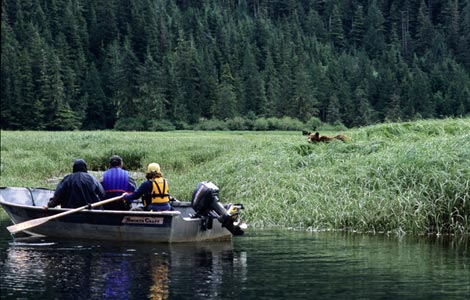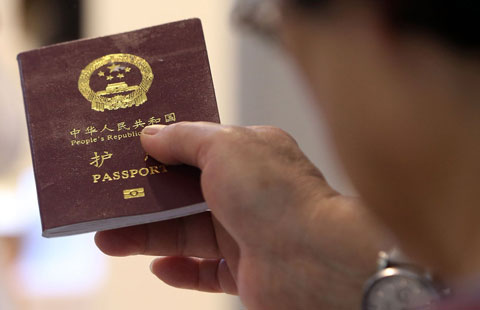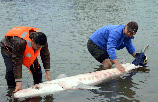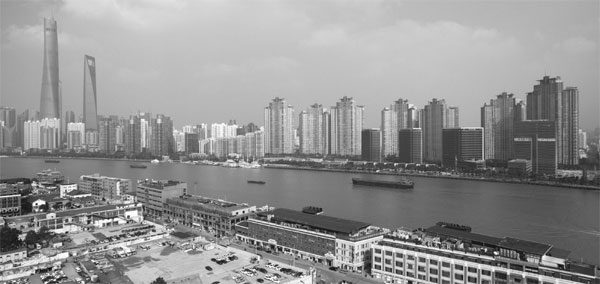Big things in store for Yangtze delta
Updated: 2014-12-12 15:49
By Li Yang in Shanghai(China Daily USA)
|
|||||||||
|
A view across the Huangpu River in Shanghai. Shanghai should take the lead in Yangtze River Delta development. Gao Erqiang / China Daily |
Party chiefs and government heads from Shanghai, Zhejiang, Jiangsu and Anhui met in Shanghai earlier last week vowing to strengthen the regional integrated development of the Yangtze River Delta next year.
The meeting statement emphasized that the four provincial regions will actively participate in the national strategies of building the Silk Road Economic Belt on the Eurasian continent and the construction the 21st Century Maritime Silk Road on the Pacific and Indian oceans, as well as the Yangtze River economic belt national strategy, so as to further promote he opening up of the most robust economic engine on China's map.
The four provincial regions will offer their assistance to the Xinjiang Uygur autonomous region, Tibet autonomous region, Yunnan province and the other regions in the west of China, with the Silk Road Economic Belt construction work.
The construction of the coastal area of Jiangsu, the ocean economy of Zhejiang, and its Zhoushan Islands new zone, Wanjiang River new zone of Anhui, and Shanghai will be combined with the construction of the 21st Century Maritime Silk Road.
The Yangtze River economic belt development strategy requires the four regions to improve their infrastructures in railway, road, aviation, oil and gas pipes to form a standardized, smart and comprehensive transportation and energy corridors.
Shanghai's advantage is rich financial resources; Jiangsu and Zhejiang are famous for developed manufacturing industry and business; Anhui is rich in natural resources and labor forces.
The meeting attendees also proposed to set up a Yangtze River Delta cooperation and development promotion foundation, the first regional foundation of its kind, to improve the efficiency of regional integration, which is often divided by protectionism and different administrative powers.
The first meeting for Yangtze River Delta integrated development was hosted in Hangzhou, capital of Zhejiang, in late 2005, by former Zhejiang Party chief and current Chinese President Xi Jinping.
The delta region has been the most important grain-production area, industry base, education center and transportation hub in China for more than 1,000 years.
The Yangtze River Delta covers an area of 210,000 square kilometers, 2 percent of China's national territory, has 156 million permanent residents, about 11 percent of China's total population, and generates more than 20 percent of China's economy.
The area has one of the largest city clusters in the world, which is made up of nearly 20 cities, led by Shanghai, Suzhou, Hangzhou, Ningbo, Nanjing, Wenzhou and Wuxi.

 Alibaba-backed Momo gains in Nasdaq debut
Alibaba-backed Momo gains in Nasdaq debut
 Despite sales slump, fast food moves ahead in China
Despite sales slump, fast food moves ahead in China
 Jade carvers, experts find a forum in Canada
Jade carvers, experts find a forum in Canada
 BC promotes eco-tourism in China
BC promotes eco-tourism in China
 Getting to know emperors through their stuff
Getting to know emperors through their stuff
 Chinese passport opens more doors in 2014
Chinese passport opens more doors in 2014
 China faces: Glimpses of life and love
China faces: Glimpses of life and love
 Top 10 favorite gift brands of rich Chinese women
Top 10 favorite gift brands of rich Chinese women
Most Viewed
Editor's Picks

|

|

|

|

|

|
Today's Top News
Climate change agenda marches on, despite its obstacles
Industry observer expects $60 crude to hold
China, US to tap trade, investment potential
Chinese brands face overseas challenges
Goal: coal to synthetic gas
Chinese brands face growth hurdles
Despite sales slump, fast food moves ahead in China
Jade carvers, experts find a forum in Canada
US Weekly

|

|









